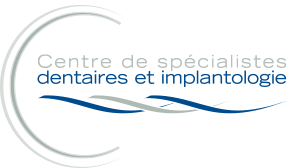Questions and Answers on Periodontal Disease
- What is Periodontal Disease?
- What factors contribute to aggravate periodontal disease?
- Can cure periodontal disease?
- Are there risks of recidivism?
- Why do I have to go back to the 3 or 4 months?
- How long do I have to go back to 3 or 4 months?
- What is the role of the team in periodontics in long-term follow-up and what is the advantage of continuing my visits with the team?
- How do I synchronize my visits to the periodontist and visits to my general dentist?
What is Periodontal Disease?
It is the disease that causes the destruction of the tissues supporting the teeth, the bone and the gum. This pathology is mainly caused by a reaction of the person’s immune system against bacteria present in the dental plaque. The result is a chronic inflammatory reaction which, over time, is responsible for destruction. It can reach the entire teeth or only certain teeth.
What factors contribute to aggravate periodontal disease?
Without causing the periodontal disease itself, many factors can contribute to the damage it causes the main ones: smoking, stress, taking certain medications, the presence of certain diseases including diabetes, inadequate oral hygiene , malnutrition, inadequate dental restorations, dental malposition, some problems of occlusion such as bruxism or teeth clenching and drug use.
Can cure periodontal disease?
Like some other diseases such as diabetes or high blood pressure, periodontal disease is a condition that can be stabilized, improved and controlled. On the other hand, it is impossible to cure it definitively since a recurrence is always possible. This explains why long-term monitoring is necessary.
Are there risks of recidivism?
Since periodontal disease can not be cured definitively, the risks of recurrence or reactivation of the disease are real. This condition is chronic and therefore usually evolves over several years. For this reason, long-term follow-up is necessary.
Why do I have to go back to the 3 or 4 months?
Free bacteria in the mouth, organize and form the bacterial biofilm. Once organized in the biofilm, bacteria produce bacterial toxins and form capsules that give them better resistance against the immune system and the external environment. The work of destroying the gum and bone is therefore more effective. Scientific research shows that a 3-month follow-up allows optimal control of biofilm, inflammation and progression of periodontal disease in patients with unstable or fragile conditions, whereas follow-up every 4 months optimal for patients with stable conditions.Some patients whose condition has been stable for a few years can resume a follow-up frequency every 6 months.
How long do I have to go back to 3 or 4 months?
Unfortunately, there is no definitive answer to this question. It is possible that this frequency should be maintained as long as he or she has teeth in the mouth to minimize the incidence of tooth loss.
People who have many risk factors such as smoking, dental malposition, defective tooth contact points, diabetes, poor hygiene, faulty restorations, high stress or other conditions inflammatory therapies are significantly more at risk of having to maintain close long-term visits.
What is the role of the team in periodontics in long-term follow-up and what is the advantage of continuing my visits with the team?
Periodontics is our area of expertise. We are constantly on the lookout for scientific developments and we possess all the advanced technology that we are constantly renewing.
Our standardized work method allows a rigorous evolutionary monitoring of the evolution of the periodontal state of the patient. This allows us to make rapid and effective changes to the treatment plan as required.
We also work closely with our patients in order to personalize and optimize the techniques of oral hygiene.
How do I synchronize my visits to the periodontist and visits to my general dentist?
Normally during the active phase of periodontal treatments, you do not need to go to your dentist for cleaning. However, this one or that one always maintains an essential role in the follow-up of your teeth for the other conditions like caries, tooth chips, bleaching and other treatments. We recommend that you maintain an annual dental examination during the active phase of periodontal treatment.
When your condition stabilizes, we will recommend a system of alternating between us and the dentist. This allows the team in periodontics to maintain the quality and validity of long-term follow-up of your periodontal condition. This way of working often avoids having to resort to more extensive treatments like periodontal surgery.
Additional information on Periodontics:
Canadian Academy of Periodontology
American Academy of Periodontology

